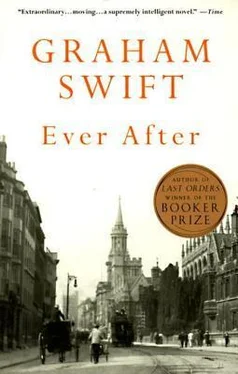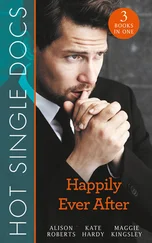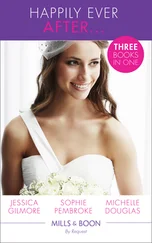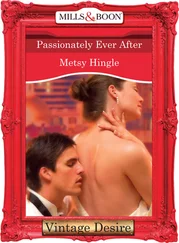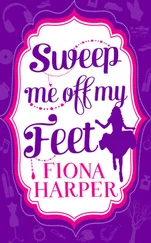He died of a brain tumour. Or so they say. If you ask me, the doctors (naturally, I thought of my great-uncle George) were as baffled as we were. In the last stages he simply lost all power of identity. A mild-natured, obliging man, he slipped towards death with a stony, empty expression on his face, speechless and unhearing, not recognising his own wife or his own daughter and having no idea, so far as you could tell, who he was himself. It was as though the Bob Vaughan we knew dissolved away before some other grim, usurping, unappeasable being. Then he died.
Her mother is still alive. She married again several years ago. But I have lost touch since Ruth’s funeral and the bouts of strained communicativeness that follow a death. Now, of course, in my present woeful circumstances, I am beyond the pale. The fact is, we never got on; and neither were Ruth and her mother always the sweetest of friends. Without ever knowing it for certain, I have always imagined Joan Vaughan as the one who was against Ruth’s preposterous choice of career from the outset, waiting ever afterwards, notwithstanding all the evidence of success, to say, “I told you so.” While Bob was the classic, doting father of an only daughter, happy for his child to do whatever she wished. I picture Ruth as a young girl quarrelling with her mother, and Bob trying, rather ineffectually, to keep the peace.
I should pity Joan, who has lost a husband and a daughter, both before their time. But I don’t. She still harbours, I think, an image of Ruth as someone who might have done something solid and sensible with her life (whatever that may have been) and therefore have still been alive now; instead of this foolishness — see, it didn’t last long — this play-acting. Don’t try to be something you’re not.…
I should want to see Joan now, because only in the mother’s features might I still catch a glimpse, a living vestige, of the daughter. But that’s now how it works.
After her father’s death, Ruth’s acting took on this new dimension, this new depth and range. Everyone noticed it. But there was also — perhaps only I saw it — this new need of protection. This desire on my part to put my arms irremovably around her, as if I were holding her together, to beg for her a special immunity. Be there, always. I don’t know what makes some people exceptional — so that we say the world would be poorer without them. I don’t know why the distribution of love is so unfair. And it’s strange that I say I wished to hold her together, since it was she, after all, who held things together for me, who held my world together. I mean the world that had fallen apart (it did, you see) with my own father’s death.
You see, I protected her so she would protect me.
From Girl Number Three to the Queen of Egypt, from the Blue Moon Club to a palace by the Nile. A reviewer of those last performances wrote (without benefit of hindsight) that she evoked the “defiant incandescence of soon to be extinguished glory.” The formal obituaries referred to them as her “crowning achievement” and the “culmination of her career.” As if she had meant it that way. While the news columns dwelt on the “real-life drama”—“found dead,” “overdose of drugs”—and bandied about, without a trace of irony, it seemed, the phrase “tragic death.”
And no one, out of tact or impercipience, alluded to the simple fact that Cleopatra is a woman who, with serene and regal deliberateness, commits suicide.
“Finish, good lady, the bright day is done, and we are for the dark.”
I had to play this scene. I understood how hard it is to act. The lines were so awful, so unconvincing. I found myself uttering the hackneyed words “How long does she have?” To which, however, there was a perfectly actual, factual reply. I didn’t want to tell her. If you don’t say it, perhaps it won’t be true. If you don’t think about it, it will go away. But she simply faced me with the same question: “How long do I have?” She didn’t blink. I found I couldn’t lie. “Two or three months.” She came back with a little flurry of brightness — she was an actress, you see: “That much?” Then she gave a look, just like a little girl who’s been punished for getting beyond herself, for having big ideas about herself. I told you so, I told you so.
And there was, after all, this simple, banal explanation. She smoked. She had lung cancer. The common vice and common nemesis of nicotine. The gifted and famous are not exempt , you know. I should have told her to stop (I did), to cut it down. I should have said (but I didn’t know ), if you don’t stop, you will die . But, but. The side effect of a certain way of life. Fuel, fire, ash. It might have been drugs, alcohol, screwing around and regular psychoanalysis. It was none of these. None. Just cigarettes. So many packs to learn a part. And the only time, she used to joke, she could do without, was when playing a non-smoking part (e.g., Cleopatra).
And besides, our bodies are ours — aren’t they? To do with as we like. And our lives. Our lives.
And right here in the Fellows’ Garden I furtively chuck my butts into the nearest flower bed.
I should blame it all, perhaps, on that conjectural ancestor of mine, the resourceful Sir Walter, who, among his countless other claims to fame, I believe, popularized the noxious New World weed. But just take him for an example. Smoked all his life like a chimney: died by the axe. There is no accounting. We have to die of something: a lung cancer, a throat cancer, a brain tumour, a bullet in the head.
But not of love, never of love. Leave that for the sonneteers. “Men have died from time to time, and worms have eaten them, but not for love.”
From the Queen of Egypt to a worried woman in a waiting room. From Cleopatra to a hospital case. From a thousand parts — tragic queen, frothy French farce flirt — to the only, unfeigned dénouement of her stricken body branded with the scars of an unsuccessful operation. So why all this acting stuff? Why all this poetry stuff? Why all this imagining it otherwise?
We gravitated towards the cottage, neglecting the London flat. We moved in things that were dear to us, such as the clock made in 1845 by John Pearce of Launceston. For me — I won’t deny it — this retreat from the publicity that was part of her life — this having Ruth to myself — was a kind of terrible boon. I think we did what most people would have done in the circumstances. We drew a circle around ourselves. We tried to carry on as if nothing were different. You could call this acting too, and one day, we knew, it would have to stop. But I ask myself: in those final weeks, were we happy? It’s not an absurd question. The human frame, it seems, has this stubborn capacity for existing in spite of the facts. We went for gentle walks in the brittle winter days. Put logs on the fire. We summoned memories while trying to pretend we were not summoning memories. Made plans — as if plans were feasible. Spent Christmas with Joan and her second husband, Roy — an exercise so mawkish, so awkward, so like a piece of treacly black comedy, that you were tricked into thinking none of it could be real.
I fielded (still technically her manager) the commiserative calls, dealt with the kind-but-cruel welter of mail. I developed unsuspected skills as a nurse, chef, maid-of-all-work. We tried to submit to the illusion that all this was some kind of benign interlude, a period of rest, of convalescence. Not a— Then a look of quiet urgency, of concentration, would come into her eyes, which would seem to make my presence futile. As if somewhere, deep inside herself, she were searching for someone. I would think: I must distract her. Distract her? I didn’t allow myself to think that all this withdrawal, this retrenchment in a country cottage, this privacy, this trying to be simply, at last, herself, was itself a kind of rehearsal (so rich with stage fright), a learning of the final part.
Читать дальше
